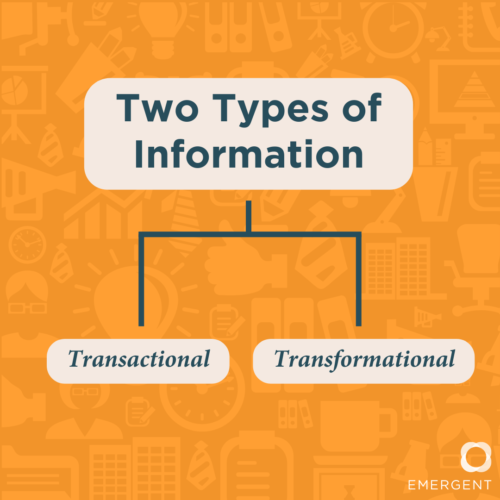When drafting a piece for the Emergent blog, I tend to use the voice-to-text function on my iPhone and then later find the note and coax it into coherence, to then share with our in-house team of editors to make it fit for public consumption. These are the blogs I like best to write. The idea finds me, my muse takes over, and the words flow almost effortlessly.
Other times I am a bit more blocked with what to write. As I work on this very post, I recognize that my blockage is not a drought of ideas, but rather a self-imposed restraining; my inner voice is telling me that the idea has been written about, talked about, and shared by so many other people. I then validate my inner voice by Googling my idea, which of course yields a tremendous sampling of articles, books, blogs, and podcasts about the topic I’m writing about.
This is a problem faced by everybody, not just writers. The Book of Ecclesiastes reminds us that there is nothing new under the sun–even truer now than 2,000 years ago! And it was Carl Sagan who said, in his peculiar way, “If you wish to make an apple pie from scratch, you must first invent the universe.”
Information is shared again and again through the written word. Inventions like the printing press and its descendant, the Internet, make this process quick and easy. But we know now more than ever that not all information is the same. As data scientist and futurist philosopher Jaron Lanier reminds us, “printing presses in themselves provide no guarantee of an enlightened outcome.” The fact that something is written does not make it true or helpful. Information is only as good as the intentions of the sharer and their diligence in adhering to the truth.
Leaders share information. It’s perhaps the most important job of a leader. Because of this, leaders must be responsible in their handling of this role.
In the context of leadership, we can divide information into two basic types: transactional and transformational. Both are important, and as a leader, you likely prefer to rely on one of these more than the other. The point of today’s blog is to challenge you to balance your information sharing between the two types. Identify which type you could practice more to become a master of information sharing.
Transactional Information:
This form of information focuses on the achievement of goals and objectives by providing information such as direction, advice, data, and technical content. Transactional information is needed to make progress on tasks. When transactional information is lacking, people are left to either go without or figure it out on their own. Going without might stop progress and kill a project, or else cause misinformation to be used instead. Figuring it out themselves could provide a real learning opportunity and a growth towards independence, but as a leader, we must be thoughtful in holding needed information back. When the desired outcome of a project demands precision, all necessary information should be shared with the relevant parties. If the outcome is more flexible, you might experiment with holding some information back in order to see what your team accomplishes on their own.
Transformational Information:
This type of information creates real change. The purpose of transformational information is to create or support growth and development in people, teams, and the organization. Leaders who coach share transformational information through conversation that is more inclusive of diverse ideas and types of thinking. Transformation happens when leaders help facilitate change, foster experimentation, and create environments for learning, which includes inevitable failure. Transformational information is informed by a mindset of growth and is fueled by the allowance of time and resources to support that growth.
One further note: As leaders, we have a responsibility to all information that passes through our offices and our mouths. We should share what is appropriate and necessary, and protect what is sensitive through confidentiality.
I’m going to make an assumption that most of you rely more on transactional information sharing as leaders. If you’d like to learn more about being a Transformational Leader through Professional Leadership Coaching, please reach out to me at bill@getemergent.com. My team and I would love to make a positive impact on you and the people you lead!

Comments (0)